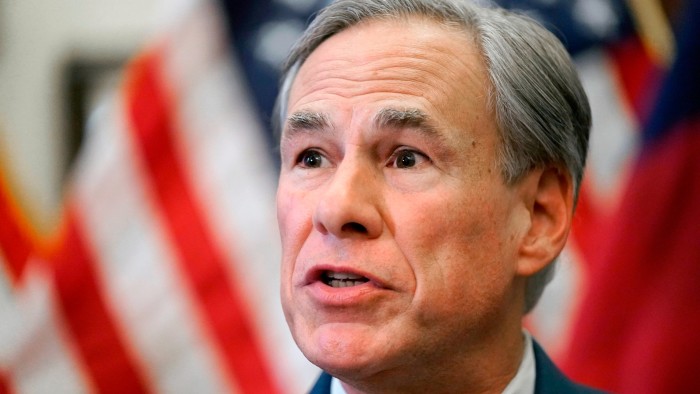Unlock the Editor’s Digest for free
Roula Khalaf, Editor of the FT, selects her favourite stories in this weekly newsletter.
One of the hottest rivalries now running in corporate America is not between two businesses but rather the judicial establishments in two states.
In an ongoing effort to become the premier home for companies big and small, Texas this month enacted major changes to its corporation law to make it more welcoming to managements as well as those shareholders with controlling stakes in a business. It was a clear escalation of the showdown with rival Nevada to challenge the dominance of Delaware as a US domicile.
“Business decisions are to be made by the elected officers and shareholders, not by unelected judges,” declared Texas governor Greg Abbott in signing the bill and laying out the Lone Star state’s pitch.
Nevada has wooed companies for years with corporate law that was more supportive of board directors over minority shareholders. The Silver State has drawn a few big corporations, typically founder-led ones. However, other companies stayed away, believing that shareholders would revolt or otherwise embed a governance discount into their share valuations.
But in recent years, the calculation has changed. Notably, Tesla moved its incorporation to Texas after its corporate governance had been criticised in the decision by a judge in Delaware, where the electric car company was previously domiciled, to nullify a $55bn stock grant awarded to Elon Musk.
And other companies believe that shareholders will not punish them for curtailing investor rights. In this year’s proxy voting season, 12 public companies are seeking to leave Delaware, according to figures compiled by Ben Edwards, a law professor at the University of Nevada. But 10 of those are absconding to Nevada and only two to the Lone Star state. Abbott and the Texas commercial sector are determined to change that ratio.
Delaware law is mostly-company friendly with one notable exception. Directors at companies with large stockholders can have much a higher burden of proof in showing transactions are fair to minority stockholders. Tesla’s problems over Musk’s pay began when the Delaware court concluded the directors deciding on pay for the chief executive were too personally intertwined with him.
In Nevada, corporate law means directors can almost never face liability for self-dealing, actions taken by controlling investors that could benefit them at the expense of minority investors.
The new Texas law also does not allow for heightened scrutiny in conflicted transactions and says board decisions cannot be challenged unless a shareholder can show fraud, intentional misconduct or a knowing violation of the law. And the law also makes it nearly impossible to get text messages and emails that often are the basis of shareholder lawsuits. Texas companies can also dictate that any lawsuit can only be filed by a shareholder who owns at least 3 per cent of the company’s stock — for Tesla, that would require a position of $30bn.
As for Delaware, in the past two years it has controversially altered its laws to tamp down on shareholder litigation over fears that its dominance in incorporations was eroding. But the worries about defections remain very real. The powerful law firm Skadden, which has a large Delaware office, recently released a memo attempting to reassure companies that the threat of costly litigation in the state had been mitigated In an accompanying podcast, a sitting judge on the Delaware Court of Chancery joined Skadden lawyers to, remarkably, reinforce that message.
“Delaware amended its law to make shareholder lawsuits nearly impossible but did so in a convoluted way to maintain plausible deniability — turns out it’s all too confusing for corp execs who figure, why not just go to Nevada or Texas where it’s pretty straightforward?,” said Ann Lipton, a law professor at Tulane University in New Orleans.
Shareholder lawsuits can be a policing mechanism on companies that also set ongoing corporate governance standards. Accountability to shareholders has long been thought by both companies and investors to maximise enterprise valuation. The Council of Institutional Investors, an advocacy group which represents large mutual funds and the like, expressed concern about the race to the bottom. “CII believes companies should not reincorporate to jurisdictions where corporate governance structures are less robust than their current jurisdiction of incorporation,” it says.
But the companies now rushing to defect from Delaware do not seem too worried about any investor backlash. There has not been much sign of one yet even from BlackRock, which has faced criticism from Abbott over what he believes are policies that are hostile to the oil and gas industry. BlackRock, which typically is among the three largest shareholders in most listed companies and has been outspoken on corporate governance, declined to comment on the new Texas law, but signed a deal last year to become a founding investor in a new stock exchange in the state.
